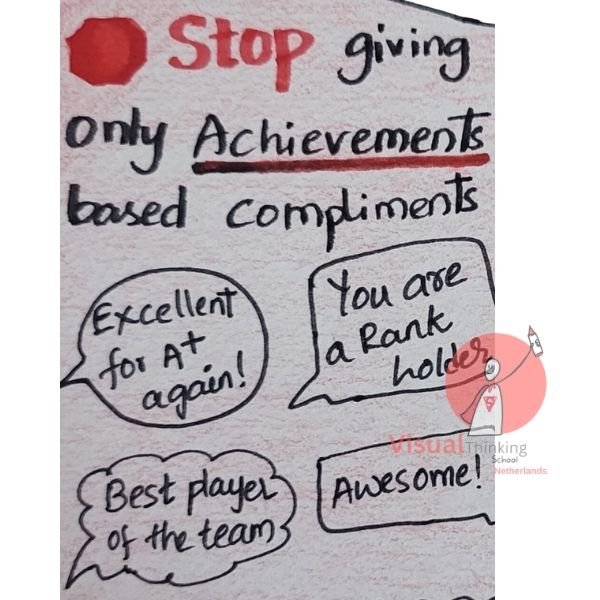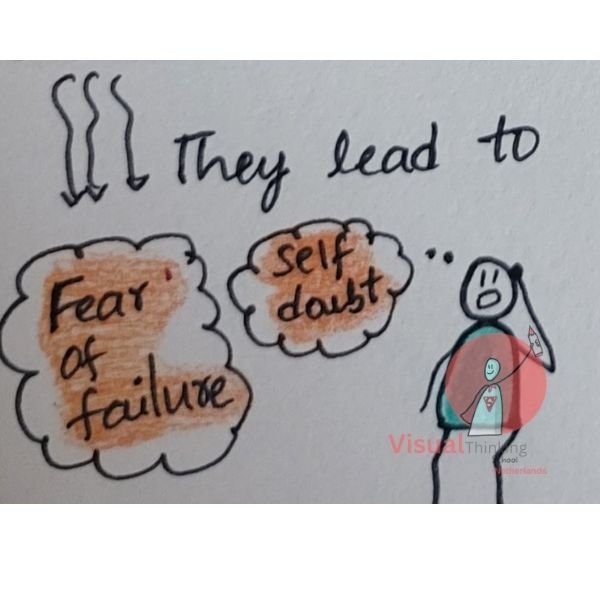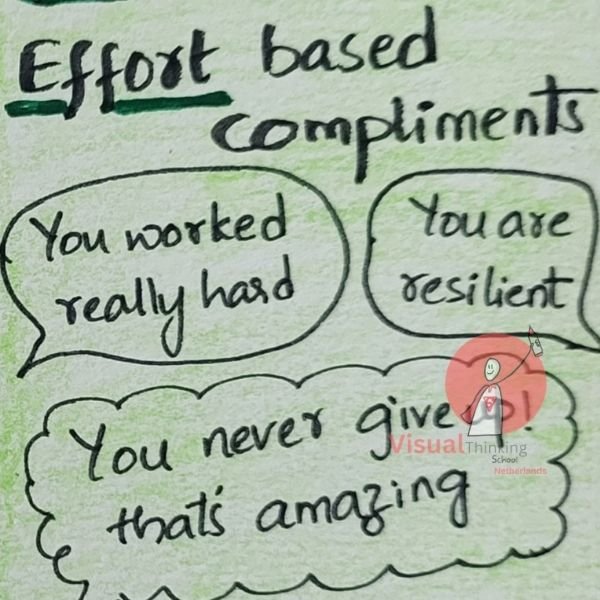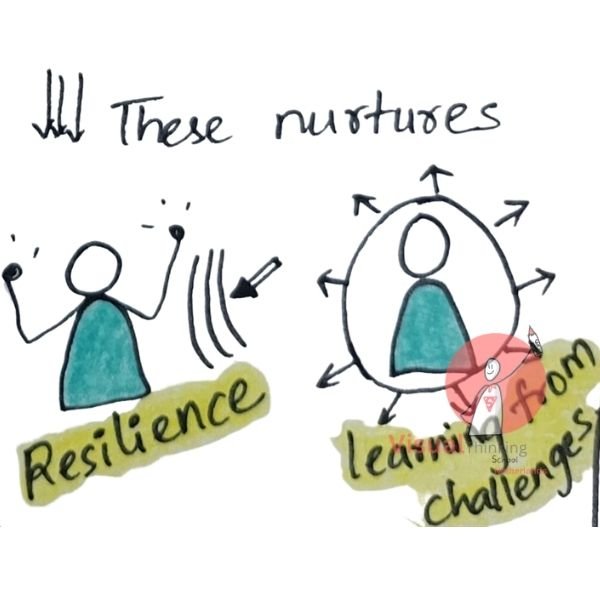
In a world where achievements often take center stage, compliments based on efforts and achievements hold incredible significance. The impact of compliments reaches far beyond a simple exchange of words; they can shape a person’s self-esteem, motivation, and attitude towards challenges. In this blog, we’ll explore the importance of shifting from achievement-based compliments to those that celebrate one’s efforts and persistence.
Compliments are a fundamental part of human interaction, and their effects can be profound. Whether you’re a parent, teacher, or simply someone who wants to make a positive impact, understanding the different types of compliments and when to use them is crucial.

As a parent, it’s natural to feel proud when your child excels in academics, sports, or other activities. Phrases like “Excellent for another A+,” “You are a rank holder,” or “You’re the best player on the team” often roll off our tongues effortlessly. While these achievement-based compliments can be motivating, they also have unintended consequences.

Constantly praising your child’s achievements can lead to a fear of failure. When success becomes the primary source of validation, children may develop an aversion to risks and challenges, fearing that any misstep could tarnish their record.2. **Dependency on External Validation:** Children who receive achievement-based compliments may grow up seeking external validation, making them vulnerable to self-esteem issues when they encounter setbacks.

If you’re a parent, it’s essential to strike a balance between acknowledging achievements and celebrating effort. By doing so, you can help your child build a healthy mindset and become more resilient in the face of challenges.
Instead of solely praising achievements, shift your focus towards acknowledging effort and persistence. Phrases like “You worked really hard,” “You are resilient,” or “You never gave up, and that’s amazing” convey the message that effort matters just as much as success.
Effort-based compliments encourage children to embrace challenges as opportunities for growth. When they understand that effort is valued, they are more likely to approach difficult tasks with enthusiasm and a willingness to learn.
Compliments that highlight resilience and determination instill qualities that will serve children well throughout their lives. They learn that setbacks are not failures but stepping stones towards improvement.

Teachers play a crucial role in shaping a student’s self-esteem and attitude towards learning. Incorporating effort-based compliments into the classroom environment can create a more positive and motivating atmosphere.
As a teacher, make it a point to recognize and praise students for their hard work and dedication. When a student spends extra time practicing a challenging concept, acknowledge their effort with phrases like “You’ve put in a lot of effort to understand this topic.
When students face academic obstacles, acknowledge their resilience and perseverance. Phrases like “You faced a tough challenge but didn’t give up, and that’s commendable” can boost their confidence.
Effort-based compliments nurture a growth mindset, where students believe that abilities can be developed through dedication and hard work. This mindset can lead to more effective learning strategies and increased resilience.
Effort-based compliments lay the foundation for a healthy self-concept. When children receive recognition for their dedication and hard work, they develop a sense of self-worth that isn’t solely tied to external accomplishments. This intrinsic self-worth becomes a source of inner strength, enabling them to weather the storms of life with resilience. By contrast, achievement-based compliments can inadvertently create a fragile self-esteem. If a child constantly hears praise for being “the best” or “always getting A’s,” they may associate their worth with these labels. This can result in anxiety and fear of losing that status, potentially leading to perfectionism and burnout.
Effort-based compliments also play a crucial role in nurturing intrinsic motivation. When individuals are intrinsically motivated, they engage in activities for the sheer joy of doing them, rather than for external rewards or recognition. Effort-based compliments reinforce the idea that the process of learning and growing is inherently valuable.As a parent, you can observe this shift when you say, “I’m proud of how you tackled that challenging assignment” instead of “You got an A on your assignment.” The former emphasizes the journey, the learning process, and the effort invested, while the latter fixates on the end result. Over time, intrinsic motivation fosters a lifelong love of learning and the pursuit of personal goals for the sheer joy of accomplishment.
Grit, a term popularized by psychologist Angela Duckworth, refers to the combination of passion and perseverance in the pursuit of long-term goals. It’s a quality that’s strongly correlated with success in various aspects of life, from academics to career achievements. Effort-based compliments are a powerful tool for instilling grit in children and students.When you praise someone’s determination, you reinforce the idea that sticking with something through thick and thin is admirable. These compliments help individuals understand that success often involves overcoming setbacks and challenges. In turn, this understanding fosters a “never give up” attitude, which is a hallmark of those who achieve great things.
EnvironmentEffort-based compliments contribute to the creation of a positive and supportive learning environment. In a classroom or home where hard work is celebrated, individuals are more likely to take risks and explore their full potential. They feel safe to make mistakes and learn from them, as they know that their efforts are valued even when they don’t yield immediate success.Teachers who incorporate effort-based compliments into their teaching practices often see a transformation in their students’ engagement and enthusiasm for learning. Students are more willing to participate actively, ask questions, and push their boundaries when they feel that their efforts are acknowledged and appreciated.
Lastly, effort-based compliments encourage well-rounded growth. While achievements in specific areas are undoubtedly important, they should not overshadow the development of other crucial life skills such as resilience, problem-solving, and adaptability. Effort-based compliments create a holistic perspective on personal growth, emphasizing that success is not limited to one domain but encompasses various aspects of life.

In conclusion, the power of compliments should not be underestimated. Whether you’re a parent or a teacher, your choice of words can shape the mindset and future of those under your guidance. By making an intentional shift towards effort-based compliments, you can inspire individuals to embrace challenges, develop resilience, and cultivate a lifelong love of learning. These compliments not only celebrate what they do but also who they are becoming – resilient, tenacious, and intrinsically motivated individuals prepared to tackle life’s complexities with confidence.
We conduct online and in-person certification trainings on our Trade Marked Training on Business Sketchnotes ™.
We have an open challenge in our trainings : If you can not draw after our 9 hours of trainings, we will close our trainings FOR EVER !! ..and we are still waiting for that one person even after training more than 38000 professionals.
You can also join our whatsapp community to learn from those who have attended our trainings

We trained more than 38000 professional and gave corporate trainings in more than 65+ top notch companies

Check Our Trainings

Maths educator by profession and sketchnoter by passion. She loves teaching maths using sketchnotes. She is also an acredited school sketchnote trainer with Visual Thinking School, Netherlands.
More of her sketchnotes can be checked on her Instagram: @Lavanya_anugula